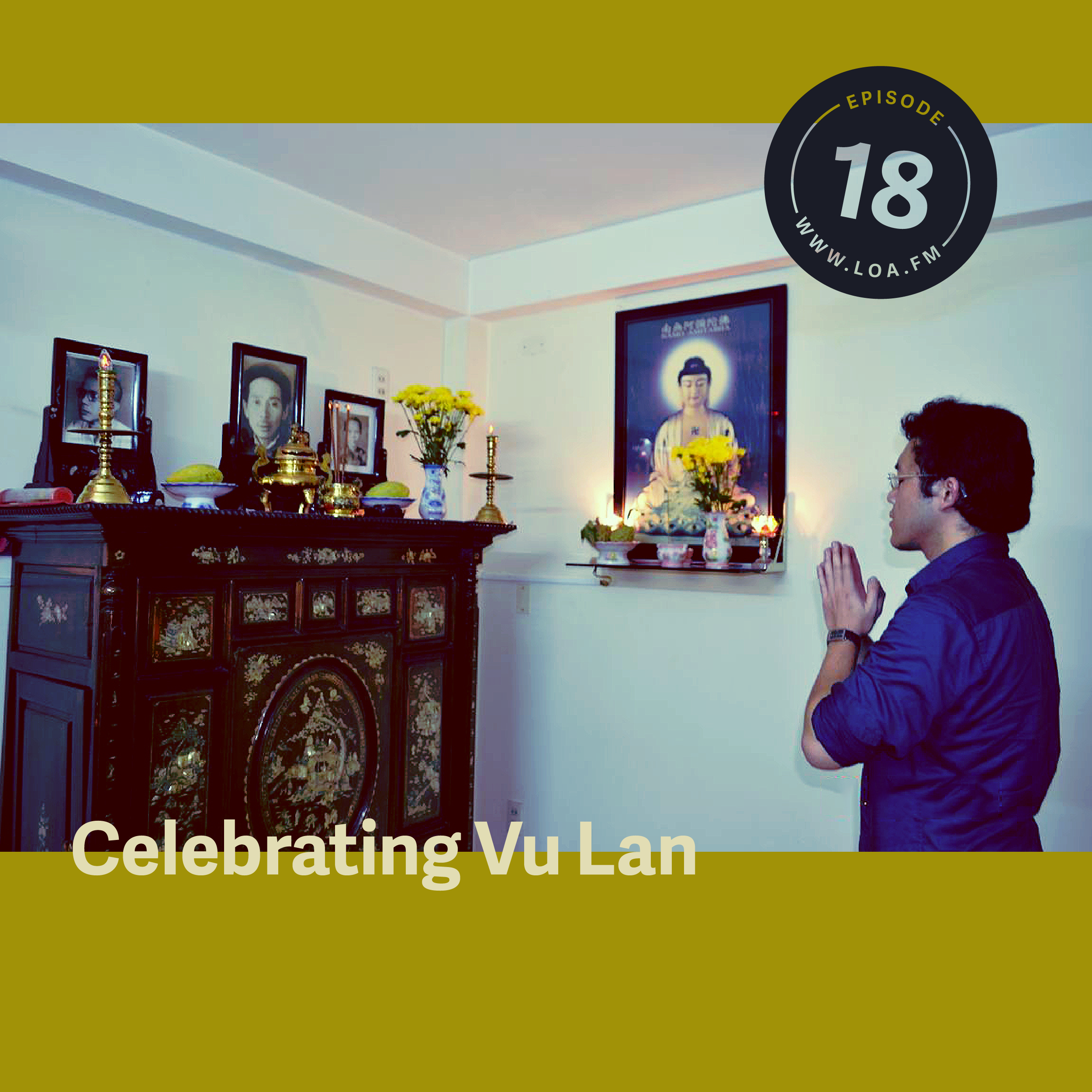Published August 24, 2015 in Episode 18
It’s August, and Pháp Vân Buddhist temple is bustling with activity. People are moving about, cleaning, arranging, and fussing with the decorations.
A strong relaxing scent of incense wafts through the altar room, as the eyes of the giant Buddha statue gaze down peacefully, seemingly smiling at the large containers of flowers. Some blooms are in deep shades of red, others are bone white. The colors can only mean one thing: Lễ Vu Lan is here.
The Venerable Thích Nhật Quán, a monk at the temple explains that Vu Lan is a time to honor and give thanks to one’s parents:
“Parents in this sense include one’s living father and/or mother and fathers or mothers who have passed. Another more profound meaning is that, for Vietnamese Buddhists, parents aren’t just our parents of this lifetime. But usually during the Vu Lan festival we pray for our parents of seven other lifetimes.”
The origins of the festival can be traced back to Buddhist roots.
The Ullambana Sutra, which is a series of Buddhist scriptures, tells the story of Maudgalyāyana, one of the Buddha’s chief disciples, on a quest to free his mother from suffering, as she has been reborn into one of the lower realms. He is instructed by the Buddha to make food offerings on the fifteenth day of the seventh month. Thus began the tradition of offering food to help guide lost, suffering souls.
Although there are slight variations in certain customs and beliefs in different countries, the fundamental rituals and spirit remain essentially the same.
In the Vietnamese adaptation of this story, Maudgalyāyana, who is known as Mục Kiện Liên in Việt Nam, is on a quest to liberate his mother from suffering, this time in hell. This version explains why the Vietnamese also observe Vu Lan by praying for condemned souls to be pardoned from hell.
“Once the Venerable Mục Kiện Liên had attained the perfect enlightenment, he used his divine eyes to observe the world. He began to think of his parents' gift of life, and he thought of his mother,” The Venerable Thích Nhật Quán explains further. “With his divine eyes, he saw his late mother reborn and suffering the tortures of hell. In Buddhism, we refer to it as a the realm of hell. When he saw this, he wanted to save her, but didn't know how. Finally, he turned to Buddha and pleaded to save his mother from her suffering. The Buddha instructed him to rely on the united strength of the Sangha in order to save his mother. The combined prayers proved to be so powerful that consequently, his mother was liberated from the realm of hell.”
Vu Lan is the second largest annual traditional festival after Tết, the lunar new year. Though the festival has Buddhist roots, the tradition of honoring parents and ancestors crosses many religious lines in Việt Nam, where the dead are very much a part of daily life.

